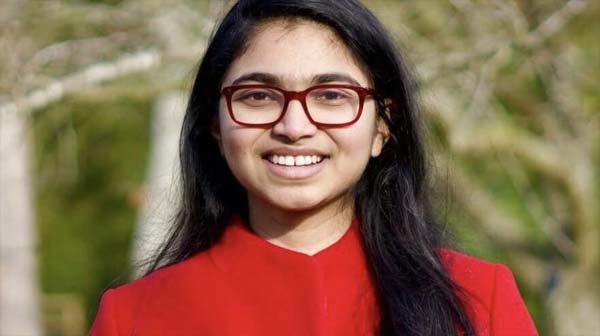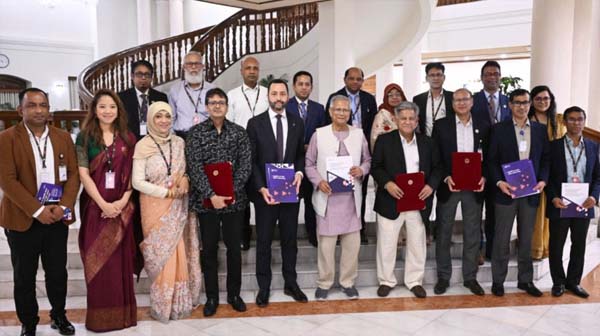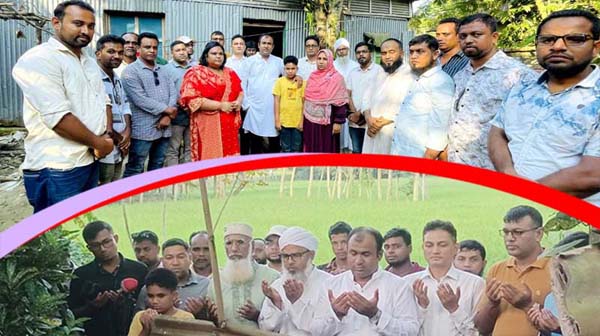Wednesday, 04 February 2026, 08:12 AM
January 10, 2026
 Police have arrested three people, including one of the alleged shooters, in connection with the murder of Swechchhasebak Dal leader Azizur Rahman Musabbir. Several teams from the Detective Branch (DB) of Dhaka Metropolitan Police conducted raids in Manikganj and Gazipur districts early today and made the arrests.
A senior DB official confirmed the development.
Speaking to The Daily Star on condition of anonymity, he said the arrestees include the alleged shooter, identified as Jinat, and the suspected planner, Billal.
The third person is believed to be an associate of the two, the official added.
On January 7, Azizur Rahman Musabbir was shot dead, while another man was injured, after miscreants opened fire on them on Kazi Nazrul Islam Avenue near Karwan Bazar's Star Hotel.
Musabbir was the former general secretary of Dhaka City North Swechchhasebak Dal, the volunteer wing of the Bangladesh Nationalist Party....
Police have arrested three people, including one of the alleged shooters, in connection with the murder of Swechchhasebak Dal leader Azizur Rahman Musabbir. Several teams from the Detective Branch (DB) of Dhaka Metropolitan Police conducted raids in Manikganj and Gazipur districts early today and made the arrests.
A senior DB official confirmed the development.
Speaking to The Daily Star on condition of anonymity, he said the arrestees include the alleged shooter, identified as Jinat, and the suspected planner, Billal.
The third person is believed to be an associate of the two, the official added.
On January 7, Azizur Rahman Musabbir was shot dead, while another man was injured, after miscreants opened fire on them on Kazi Nazrul Islam Avenue near Karwan Bazar's Star Hotel.
Musabbir was the former general secretary of Dhaka City North Swechchhasebak Dal, the volunteer wing of the Bangladesh Nationalist Party....
January 10, 2026
 The Election Commission (EC) has declared the nomination paper of Tasnim Jara, an independent candidate for Dhaka-9, valid.
The decision came today around 12:30pm following a hearing of her appeal before the commission. On January 3, nomination papers of Tasnim Jara for the Dhaka-9 constituency (Khilgaon, Sobujbagh and Mugda) have been rejected by the returning officer following scrutiny.
She filed an appeal with the EC on January 5, challenging the cancellation of her nomination papers for the 13th National Election scheduled for February 12....
The Election Commission (EC) has declared the nomination paper of Tasnim Jara, an independent candidate for Dhaka-9, valid.
The decision came today around 12:30pm following a hearing of her appeal before the commission. On January 3, nomination papers of Tasnim Jara for the Dhaka-9 constituency (Khilgaon, Sobujbagh and Mugda) have been rejected by the returning officer following scrutiny.
She filed an appeal with the EC on January 5, challenging the cancellation of her nomination papers for the 13th National Election scheduled for February 12....
January 10, 2026
 Best Pro SEO Agency, a pioneering force in the digital marketing landscape, today announced the official rollout of its specialized SEO frameworks. These campaigns are specifically engineered to integrate Artificial Intelligence (AI) SEO with traditional search strategies, ensuring businesses remain visible in an era of rapidly evolving search algorithms.
As the search landscape shifts toward AI-driven results, Best Pro SEO Agency is leading the charge by helping brands optimize for both human intent and AI crawlers. By leveraging Generative Engine Optimization (GEO), the agency ensures that businesses are not only ranked on Google but are also cited as authoritative sources by AI platforms like ChatGPT, Gemini, and Perplexity.
Innovative Features of the New Tailored Campaigns:
AI-Enhanced Semantic Search: Moving beyond simple keywords to optimize for the context and intent that AI engines prioritize.
Predictive Analytics: Utilizing AI tools to forecast search trends, allowing businesses to capture traffic before their competitors.
Local SEO Mastery: A data-driven approach to dominate local search results, crucial for the growth of SMEs in Bangladesh and beyond.
E-E-A-T Optimization: Strengthening the "Experience, Expertise, Authoritativeness, and Trustworthiness" of a brand’s digital footprint to ensure long-term sustainability.
"The goal of SEO has evolved. It is no longer just about being on the first page; it’s about being the most trusted answer in an AI-driven world," said Shaddam Hossain Sufol, SEO Director at Best Pro SEO Agency. "Our tailored campaigns provide small and medium businesses with the high-level AI strategies typically reserved for global corporations."
With this launch, Best Pro SEO Agency reaffirms its commitment to providing cutting-edge, affordable, and transparent digital growth solutions that empower entrepreneurs to scale their online presence effectively.
About Best Pro SEO Agency Best Pro SEO Agency is a...
Best Pro SEO Agency, a pioneering force in the digital marketing landscape, today announced the official rollout of its specialized SEO frameworks. These campaigns are specifically engineered to integrate Artificial Intelligence (AI) SEO with traditional search strategies, ensuring businesses remain visible in an era of rapidly evolving search algorithms.
As the search landscape shifts toward AI-driven results, Best Pro SEO Agency is leading the charge by helping brands optimize for both human intent and AI crawlers. By leveraging Generative Engine Optimization (GEO), the agency ensures that businesses are not only ranked on Google but are also cited as authoritative sources by AI platforms like ChatGPT, Gemini, and Perplexity.
Innovative Features of the New Tailored Campaigns:
AI-Enhanced Semantic Search: Moving beyond simple keywords to optimize for the context and intent that AI engines prioritize.
Predictive Analytics: Utilizing AI tools to forecast search trends, allowing businesses to capture traffic before their competitors.
Local SEO Mastery: A data-driven approach to dominate local search results, crucial for the growth of SMEs in Bangladesh and beyond.
E-E-A-T Optimization: Strengthening the "Experience, Expertise, Authoritativeness, and Trustworthiness" of a brand’s digital footprint to ensure long-term sustainability.
"The goal of SEO has evolved. It is no longer just about being on the first page; it’s about being the most trusted answer in an AI-driven world," said Shaddam Hossain Sufol, SEO Director at Best Pro SEO Agency. "Our tailored campaigns provide small and medium businesses with the high-level AI strategies typically reserved for global corporations."
With this launch, Best Pro SEO Agency reaffirms its commitment to providing cutting-edge, affordable, and transparent digital growth solutions that empower entrepreneurs to scale their online presence effectively.
About Best Pro SEO Agency Best Pro SEO Agency is a...
January 05, 2026
 Dhaka, Bangladesh – January 5, 2026 – Shomvob Technologies Ltd., the pioneering job and HR technology platform in Bangladesh, continues to bridge the gap between job seekers and employers since its launch in 2022. Founded with a vision to create seamless connections, Shomvob empowers blue- and silver-collar workers by offering professional digital profiles, skill-matching algorithms, and real-time application tracking.
Key Achievements
Shomvob has registered over 600,000 job seekers and 1,300+ companies, facilitating more than 12,000 placements in sectors like logistics, retail, and healthcare. The platform raised $1 million in pre-seed funding led by Cocoon Capital, plus a grant from the Bill & Melinda Gates Foundation, fueling expansions into HRIS, payroll, and global mobility. Recently featured in Forbes Asia's "100 to Watch 2025," Shomvob earned recognition for transforming Bangladesh's workforce landscape.
Comprehensive Services
Job Posting: Quick, 2-minute postings accessing 1,000,000+ candidate resumes for efficient hiring.
Recruitment Process Outsourcing: Streamlined hiring with ATS and compliance tools to cut costs and time.
Staffing and Payroll Solutions: End-to-end workforce management tailored for businesses.
Workforce Training & Development: Upskilling programs, especially for low-income women, focusing on roles like call center agents, delivery personnel, and sales assistants.
Contact Details
Reach Shomvob at +880 9638-885588 or info@shomvob.com. The headquarters is located at Baridhara DOHS, Dhaka-1206, Bangladesh....
Dhaka, Bangladesh – January 5, 2026 – Shomvob Technologies Ltd., the pioneering job and HR technology platform in Bangladesh, continues to bridge the gap between job seekers and employers since its launch in 2022. Founded with a vision to create seamless connections, Shomvob empowers blue- and silver-collar workers by offering professional digital profiles, skill-matching algorithms, and real-time application tracking.
Key Achievements
Shomvob has registered over 600,000 job seekers and 1,300+ companies, facilitating more than 12,000 placements in sectors like logistics, retail, and healthcare. The platform raised $1 million in pre-seed funding led by Cocoon Capital, plus a grant from the Bill & Melinda Gates Foundation, fueling expansions into HRIS, payroll, and global mobility. Recently featured in Forbes Asia's "100 to Watch 2025," Shomvob earned recognition for transforming Bangladesh's workforce landscape.
Comprehensive Services
Job Posting: Quick, 2-minute postings accessing 1,000,000+ candidate resumes for efficient hiring.
Recruitment Process Outsourcing: Streamlined hiring with ATS and compliance tools to cut costs and time.
Staffing and Payroll Solutions: End-to-end workforce management tailored for businesses.
Workforce Training & Development: Upskilling programs, especially for low-income women, focusing on roles like call center agents, delivery personnel, and sales assistants.
Contact Details
Reach Shomvob at +880 9638-885588 or info@shomvob.com. The headquarters is located at Baridhara DOHS, Dhaka-1206, Bangladesh....
October 22, 2025
 Jewellers have cut gold prices by Tk 8,386 per bhori, thanks to a drop in the rates of pure gold in the local market.
From tomorrow, the price of each bhori (11.664 grammes) of 22-carat gold ornaments will be Tk 208,995, down from Tk 217,381.
The Bangladesh Jewellers Association took the decision to decrease gold prices in a meeting today, the association said in a press release.
On October 19, gold prices surged to yet another historic peak, reaching Tk 217,381 per bhori (approximately 11.664 grammes).
Prices of the precious metal in Bangladesh have been rising steadily, setting new records almost every week.
In September alone, the price of 22-carat gold rose by more than Tk 16,000 per bhori.
Industry insiders attribute the surge mainly to the international bullion market, the devaluation of the taka, economic uncertainty, and high inflation.
Although Bangladesh does not import significant volumes of gold, domestic prices remain closely aligned with global trends.
According to the Gold Policy 2018, annual domestic demand in Bangladesh stands between 20 and 40 tonnes.
Meanwhile, around 80 percent of the country's gold demand is met through smuggling, leading to substantial revenue losses for the government, said industry people.
During Bangladesh's Liberation War, gold was sold for Tk 170 per bhori. Within ten years, it reached Tk 3,750 per bhori. By 2000, it hit Tk 6,900, and by 2010, Tk 42,165.
In January 2018, gold crossed Tk 50,000 per bhori for the first time. Five years later, in July 2023, it hit Tk 100,000. After further jumps, it reached Tk 150,000 in February 2025, and later surged past Tk 200,000 per bhori....
Jewellers have cut gold prices by Tk 8,386 per bhori, thanks to a drop in the rates of pure gold in the local market.
From tomorrow, the price of each bhori (11.664 grammes) of 22-carat gold ornaments will be Tk 208,995, down from Tk 217,381.
The Bangladesh Jewellers Association took the decision to decrease gold prices in a meeting today, the association said in a press release.
On October 19, gold prices surged to yet another historic peak, reaching Tk 217,381 per bhori (approximately 11.664 grammes).
Prices of the precious metal in Bangladesh have been rising steadily, setting new records almost every week.
In September alone, the price of 22-carat gold rose by more than Tk 16,000 per bhori.
Industry insiders attribute the surge mainly to the international bullion market, the devaluation of the taka, economic uncertainty, and high inflation.
Although Bangladesh does not import significant volumes of gold, domestic prices remain closely aligned with global trends.
According to the Gold Policy 2018, annual domestic demand in Bangladesh stands between 20 and 40 tonnes.
Meanwhile, around 80 percent of the country's gold demand is met through smuggling, leading to substantial revenue losses for the government, said industry people.
During Bangladesh's Liberation War, gold was sold for Tk 170 per bhori. Within ten years, it reached Tk 3,750 per bhori. By 2000, it hit Tk 6,900, and by 2010, Tk 42,165.
In January 2018, gold crossed Tk 50,000 per bhori for the first time. Five years later, in July 2023, it hit Tk 100,000. After further jumps, it reached Tk 150,000 in February 2025, and later surged past Tk 200,000 per bhori....
October 22, 2025
 Chief Adviser Professor Muhammad Yunus today said Bangladesh has made history by advancing workers' legal rights, as the interim government ratified three conventions of the International Labour Organization (ILO).
Bangladesh today ratified three ILO conventions to improve worker safety, health, and protection against workplace violence and harassment.
Recalling the 2013 Rana Plaza disaster, the chief adviser said, "After the Rana Plaza tragedy, the then government agreed to do everything. But nothing happened as per their commitment. They kept saying 'it is being done, it will be done'. But we said 'no more it is being done, it will be done' -- we must do it."
The CA's press wing issued a press release after the ILO Convention signing ceremony was held at the State Guest House Jamuna.
"Since I took office as the chief adviser, labour rights were my first priority. I held meetings time and again and kept saying everywhere that this must be done. Signing this will benefit all of us," he said.
"I was told I had to go to the next Geneva meeting. I tried to understand why no one had attended the past meetings," Yunus added.
Labour and Employment as well as Shipping Adviser Brig Gen (retd) M Sakhawat Hussain signed the instruments of ratification on behalf of the government in presence of the chief adviser.
The three ratified conventions are: Occupational Safety and Health Convention, 1981 (No. 155); Promotional Framework for Occupational Safety and Health Convention, 2006 (No. 187); and Violence and Harassment Convention, 2019 (No. 190). Of these, Conventions 187 and 155 were declared as fundamental conventions by the ILO in 2022.
"We must keep our commitments. What the convention says, what rights it talks about, must be conveyed to everyone," the chief adviser said.
Terming the day as a memorable one in the history of labour rights in Bangladesh, he said, "From the tragedy of Rana Plaza to today's signing, we have reached a milestone."
"Our efforts will bear...
Chief Adviser Professor Muhammad Yunus today said Bangladesh has made history by advancing workers' legal rights, as the interim government ratified three conventions of the International Labour Organization (ILO).
Bangladesh today ratified three ILO conventions to improve worker safety, health, and protection against workplace violence and harassment.
Recalling the 2013 Rana Plaza disaster, the chief adviser said, "After the Rana Plaza tragedy, the then government agreed to do everything. But nothing happened as per their commitment. They kept saying 'it is being done, it will be done'. But we said 'no more it is being done, it will be done' -- we must do it."
The CA's press wing issued a press release after the ILO Convention signing ceremony was held at the State Guest House Jamuna.
"Since I took office as the chief adviser, labour rights were my first priority. I held meetings time and again and kept saying everywhere that this must be done. Signing this will benefit all of us," he said.
"I was told I had to go to the next Geneva meeting. I tried to understand why no one had attended the past meetings," Yunus added.
Labour and Employment as well as Shipping Adviser Brig Gen (retd) M Sakhawat Hussain signed the instruments of ratification on behalf of the government in presence of the chief adviser.
The three ratified conventions are: Occupational Safety and Health Convention, 1981 (No. 155); Promotional Framework for Occupational Safety and Health Convention, 2006 (No. 187); and Violence and Harassment Convention, 2019 (No. 190). Of these, Conventions 187 and 155 were declared as fundamental conventions by the ILO in 2022.
"We must keep our commitments. What the convention says, what rights it talks about, must be conveyed to everyone," the chief adviser said.
Terming the day as a memorable one in the history of labour rights in Bangladesh, he said, "From the tragedy of Rana Plaza to today's signing, we have reached a milestone."
"Our efforts will bear...
October 19, 2025
 The murder case of Golam Rabbani Nadim, former Jamalpur district correspondent of BanglaNews24.com and former upazila correspondent of Ekattor TV, appears to be following the same unresolved path as the infamous Sagar-Runi double murder case. Despite two years having passed, there has been little to no progress in the investigation or trial. Nadim’s family alleges that efforts are being made to shield the real perpetrators.
During an on-site visit on Saturday (October 18), Nadim’s wife, Monira Begum, and his father, retired BDR member Abdul Karim, made these allegations to Md. Khairul Alam Rafiq, Chairman of Journalist Torture Prevention Cell Bangladesh (JTP Cell), and his team.
Monira Begum stated, “Under the leadership of former Awami League leader of Sadurpara Union, Mahmudul Alam alias Babu Chairman, 27 people were involved in my husband’s murder, but only 9 names were included in the charge sheet. The real killers remain at large, posing a threat to us. We have filed a no-confidence petition in court mentioning the names of the actual accused and are now awaiting a hearing.”
She added, “We are helpless. No one is standing by us except the journalists of Bakshiganj, who have been providing continuous support and encouragement. I demand maximum punishment for my husband’s killers.”
At the time, JTP Cell Chairman Md. Khairul Alam Rafiq said, “Since 1992, a total of 69 journalists have been murdered in Bangladesh. The absence of exemplary justice in these cases has emboldened killers to strike again — as seen in the recent public murder of Asaduzzaman Tuhin, staff reporter of Dainik Protidhiner Kagoj in Gazipur. The entire journalism community, and indeed the whole nation, mourned his death.”
He described Nadim’s murder as a “sensational and brutal killing” carried out by professional assassins. “The investigating officers have repeatedly staged drama-like acts to protect the real culprits — much like in the Sagar-Runi case, where...
The murder case of Golam Rabbani Nadim, former Jamalpur district correspondent of BanglaNews24.com and former upazila correspondent of Ekattor TV, appears to be following the same unresolved path as the infamous Sagar-Runi double murder case. Despite two years having passed, there has been little to no progress in the investigation or trial. Nadim’s family alleges that efforts are being made to shield the real perpetrators.
During an on-site visit on Saturday (October 18), Nadim’s wife, Monira Begum, and his father, retired BDR member Abdul Karim, made these allegations to Md. Khairul Alam Rafiq, Chairman of Journalist Torture Prevention Cell Bangladesh (JTP Cell), and his team.
Monira Begum stated, “Under the leadership of former Awami League leader of Sadurpara Union, Mahmudul Alam alias Babu Chairman, 27 people were involved in my husband’s murder, but only 9 names were included in the charge sheet. The real killers remain at large, posing a threat to us. We have filed a no-confidence petition in court mentioning the names of the actual accused and are now awaiting a hearing.”
She added, “We are helpless. No one is standing by us except the journalists of Bakshiganj, who have been providing continuous support and encouragement. I demand maximum punishment for my husband’s killers.”
At the time, JTP Cell Chairman Md. Khairul Alam Rafiq said, “Since 1992, a total of 69 journalists have been murdered in Bangladesh. The absence of exemplary justice in these cases has emboldened killers to strike again — as seen in the recent public murder of Asaduzzaman Tuhin, staff reporter of Dainik Protidhiner Kagoj in Gazipur. The entire journalism community, and indeed the whole nation, mourned his death.”
He described Nadim’s murder as a “sensational and brutal killing” carried out by professional assassins. “The investigating officers have repeatedly staged drama-like acts to protect the real culprits — much like in the Sagar-Runi case, where...
October 13, 2025
 The Mymensingh district administration has cancelled the publication declarations of 11 newspapers published from the district. The cancellation order was issued last Thursday, and official letters were delivered to the concerned publishers and editors on Sunday and Monday, according to the administration.
The newspapers whose declarations have been revoked are:
Dainik Ajker Mymensingh (edited by Md. Shamsul Alam Khan), Dainik Desher Khobor (edited by F.M.A. Salam), Dainik Bishwer Mukhopatra (edited by N.B.M. Ibrahim Khalil Rahim), Dainik Ishika (founded by the late Abdur Razzaq Talukder), Dainik Adommo Bangla (edited by Nasir Uddin Ahmed), Dainik Alokito Mymensingh and Dainik Digonto Bangla (edited by A.N.M. Faruk), Dainik Jahan (published by Sheikh Mehedi Hasan Nadim), Dainik Kishaner Desh (edited by Omar Faruk), Hridoye Bangladesh (edited by Farida Yasmin Ratna), Saptahik Poridhi (edited by Bikash Roy).
On Monday (October 13) afternoon, Additional Deputy Commissioner (ADC) of Mymensingh Umme Habiba Meera confirmed the cancellation, stating that letters were sent to all concerned editors and publishers last Thursday.
According to the official notice, on April 10 and 13, the 11 newspapers were found to have published identical reports and images on the second and third pages, and those issues were not printed from approved printing presses. Consequently, on April 16, the administration issued show-cause notices to 13 editors and publishers.
On April 21, the publishers responded, admitting the error and blaming the issue on an external printing press’s negligence and a breakdown in their own printing system. However, the explanations were deemed unsatisfactory and unacceptable.
Subsequently, on May 18, an executive magistrate conducted an on-site investigation, which confirmed that the 11 newspapers were not being printed from authorized presses—a clear violation of Sections 4 and 7 of the Printing Presses and Publications (Declaration and Registration)...
The Mymensingh district administration has cancelled the publication declarations of 11 newspapers published from the district. The cancellation order was issued last Thursday, and official letters were delivered to the concerned publishers and editors on Sunday and Monday, according to the administration.
The newspapers whose declarations have been revoked are:
Dainik Ajker Mymensingh (edited by Md. Shamsul Alam Khan), Dainik Desher Khobor (edited by F.M.A. Salam), Dainik Bishwer Mukhopatra (edited by N.B.M. Ibrahim Khalil Rahim), Dainik Ishika (founded by the late Abdur Razzaq Talukder), Dainik Adommo Bangla (edited by Nasir Uddin Ahmed), Dainik Alokito Mymensingh and Dainik Digonto Bangla (edited by A.N.M. Faruk), Dainik Jahan (published by Sheikh Mehedi Hasan Nadim), Dainik Kishaner Desh (edited by Omar Faruk), Hridoye Bangladesh (edited by Farida Yasmin Ratna), Saptahik Poridhi (edited by Bikash Roy).
On Monday (October 13) afternoon, Additional Deputy Commissioner (ADC) of Mymensingh Umme Habiba Meera confirmed the cancellation, stating that letters were sent to all concerned editors and publishers last Thursday.
According to the official notice, on April 10 and 13, the 11 newspapers were found to have published identical reports and images on the second and third pages, and those issues were not printed from approved printing presses. Consequently, on April 16, the administration issued show-cause notices to 13 editors and publishers.
On April 21, the publishers responded, admitting the error and blaming the issue on an external printing press’s negligence and a breakdown in their own printing system. However, the explanations were deemed unsatisfactory and unacceptable.
Subsequently, on May 18, an executive magistrate conducted an on-site investigation, which confirmed that the 11 newspapers were not being printed from authorized presses—a clear violation of Sections 4 and 7 of the Printing Presses and Publications (Declaration and Registration)...
October 12, 2025
 Intense clashes have broken out between Pakistani and Afghan troops along the border region. The fighting reportedly began on Saturday night (October 11) between Pakistani soldiers and Afghan border guards.
Local authorities in Afghanistan’s southern Helmand province stated that Taliban fighters have taken control of two Pakistani border posts.
Pakistani security officials confirmed that fighting occurred in more than five locations along the border and that retaliatory attacks are underway.
The latest confrontation follows an airstrike in Kabul on Friday night, reportedly targeting a top leader of the militant group Tehrik-i-Taliban Pakistan (TTP). The Taliban government in Kabul blamed Islamabad for the airstrike, sharply escalating tensions between the two neighboring countries....
Intense clashes have broken out between Pakistani and Afghan troops along the border region. The fighting reportedly began on Saturday night (October 11) between Pakistani soldiers and Afghan border guards.
Local authorities in Afghanistan’s southern Helmand province stated that Taliban fighters have taken control of two Pakistani border posts.
Pakistani security officials confirmed that fighting occurred in more than five locations along the border and that retaliatory attacks are underway.
The latest confrontation follows an airstrike in Kabul on Friday night, reportedly targeting a top leader of the militant group Tehrik-i-Taliban Pakistan (TTP). The Taliban government in Kabul blamed Islamabad for the airstrike, sharply escalating tensions between the two neighboring countries....
October 12, 2025
 Bangladesh will begin its first-ever national typhoid vaccination campaign tomorrow, October 12, to protect children from typhoid fever. The month-long campaign aims to provide free injectable typhoid vaccines to around 50 million children aged between 9 months and under 15 years, according to a press release issued on Saturday (October 11) by Mahmudul Hasan, Public Relations Officer at the Ministry of Health and Family Welfare.
The campaign will be inaugurated on Sunday at Sir Salimullah Muslim Orphanage, Azimpur, under the title Typhoid Vaccination Campaign 2025. Health and Family Welfare Adviser Noorjahan Begum will attend as the chief guest, while Sharmin S. Murshid, Adviser to the Ministries of Social Welfare and Women and Children Affairs, will be present as a special guest.
The Directorate General of Health Services (DGHS) announced that even children without birth certificates will be included in the campaign to ensure no one is left behind. This is the first-ever national typhoid vaccination program in the country. The vaccine has been produced by India’s Serum Institute and supplied to Bangladesh through the support of Gavi, the Vaccine Alliance.
Professor Dr. Md. Sayedur Rahman, Special Assistant to the Chief Adviser of the Interim Government (in charge of the State Minister for Health), stated that the vaccine is fully safe and approved by the World Health Organization (WHO). It has already been successfully used in eight countries, including Nepal and Pakistan, with no major side effects reported.
According to the Health Ministry, students from pre-primary to class nine will receive the vaccine at schools and madrasas until October 30. After that, children aged 9 months to under 15 years will be vaccinated through door-to-door visits, while NGOs will cover street children in urban areas.
The government aims to vaccinate 49 million children under this campaign. So far, 16.8 million children have already registered, and the registration process is ongoing....
Bangladesh will begin its first-ever national typhoid vaccination campaign tomorrow, October 12, to protect children from typhoid fever. The month-long campaign aims to provide free injectable typhoid vaccines to around 50 million children aged between 9 months and under 15 years, according to a press release issued on Saturday (October 11) by Mahmudul Hasan, Public Relations Officer at the Ministry of Health and Family Welfare.
The campaign will be inaugurated on Sunday at Sir Salimullah Muslim Orphanage, Azimpur, under the title Typhoid Vaccination Campaign 2025. Health and Family Welfare Adviser Noorjahan Begum will attend as the chief guest, while Sharmin S. Murshid, Adviser to the Ministries of Social Welfare and Women and Children Affairs, will be present as a special guest.
The Directorate General of Health Services (DGHS) announced that even children without birth certificates will be included in the campaign to ensure no one is left behind. This is the first-ever national typhoid vaccination program in the country. The vaccine has been produced by India’s Serum Institute and supplied to Bangladesh through the support of Gavi, the Vaccine Alliance.
Professor Dr. Md. Sayedur Rahman, Special Assistant to the Chief Adviser of the Interim Government (in charge of the State Minister for Health), stated that the vaccine is fully safe and approved by the World Health Organization (WHO). It has already been successfully used in eight countries, including Nepal and Pakistan, with no major side effects reported.
According to the Health Ministry, students from pre-primary to class nine will receive the vaccine at schools and madrasas until October 30. After that, children aged 9 months to under 15 years will be vaccinated through door-to-door visits, while NGOs will cover street children in urban areas.
The government aims to vaccinate 49 million children under this campaign. So far, 16.8 million children have already registered, and the registration process is ongoing....